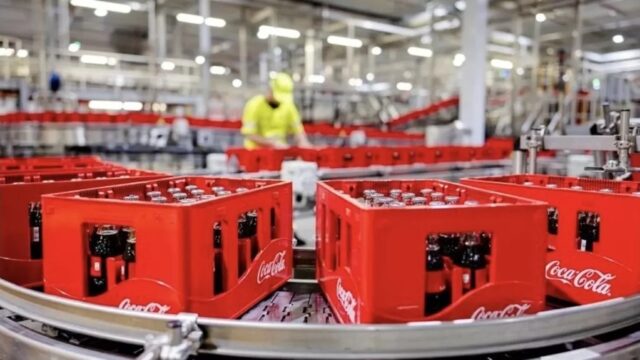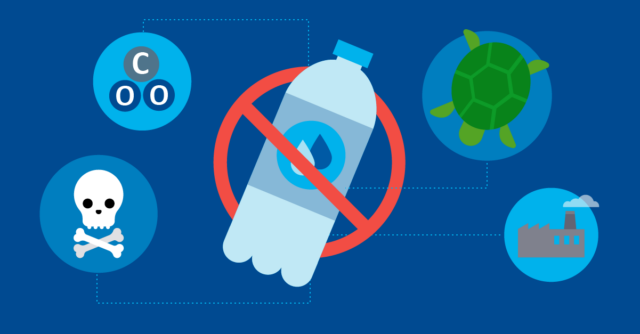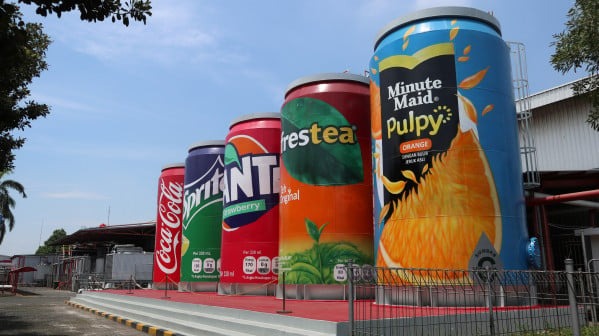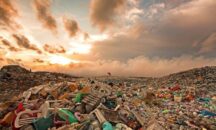Effective 01 July 2025, Coca-Cola will close its bottling plants on Jalan Raya Denpasar-Singaraja in Bali, resulting in a significant termination of the Company’s Island workforce.
NusaBali.com reports that the plant’s closure will add to the rising tide of unemployment that has occurred during the first five months of 2025, which has left hundreds of workers unemployed in Bali.
The Director of Public Affairs, Communications, and Sustainability (PACS) for Coca-Cola Europacific Partners plc (CCEP), Luca Karina, described the closure of the Bali facility as part of a strategic move by the international beverage producer necessary to remain profitable, competitive, and sustainable over the long term.
“As part of this change, we are optimizing our manufacturing and logistics network to adapt to future business needs,” he said. Lucia added that the decision was the result of a comprehensive business review and was made with careful consideration. CCEP Indonesia is committed to running this entire process fairly, transparently, and with full respect for its employees.
“All employees affected by this change will receive support from the company in accordance with the Republic of Indonesia Manpower Law and the Collective Labor Agreement in place at CCEP Indonesia, including career transition services, job placement support, and access to welfare services,” said Lucia.
The number of workers at PT Coca-Cola Bottling Indonesia under the Coca-Cola Europacific Partners (CCEP) is 70 people.
The Company insists that the severance pay for those who have refused transfer to other CCEP facilities exceeds the minimum amounts set under Indonesian labor law. In addition, the Company will also provide supplemental severance pay equal to 6 times the salary paid to each worker.
“All employees affected by this change will receive support from the company in accordance with the Republic of Indonesia Manpower Law and the Collective Labor Agreement applicable at CCEP Indonesia, including career transition services, job placement support, and access to welfare services,” said Lucia.
The number of workers at PT Coca-Cola Bottling Indonesia under the Coca-Cola Europacific Partners (CCEP) Bali production division is 70 people. However, those assigned to the production section in Werdi Bhuwana Village are 55 people, and another 15 people are assigned to Jalan Nangka, Denpasar. Factory workers in Werdi Bhuwana Village were terminated due to the closure of the production division, which had 52 people, while 3 people were able to accept transfers to companies in Jakarta and Surabaya.
In addition, the Company will also continue to pay BPJS Ketenagakerjaan (Social Security) to workers for 10 months, dating from the closure of the Bali production facility. The Company will also provide education and training to laid-off workers to develop skills needed to find work in other companies. Lucia continued, saying this change is not a strategy to reduce or exit CCEP’s business from Indonesia. “We remain strongly committed to Indonesia, and will continue to invest in key growth areas to be able to serve customers, consumers, and the surrounding community sustainably,” he explained.
The layoffs of workers by Coca-Cola in Bali form part of a wave of recent job terminations in the Badung Regency of Bali. During the January-May 2025 period, hundreds of workers. Especially in the tourism sector, have lost their jobs.
Chairman of Commission IV of the Badung People’s Representative Assembly (DPRD), I Nyoman Graha Wicaksana, after visiting the Coca-Cola factory in Werdi Bhuwana Village, called on the Manpower Office to take mitigation steps so that affected employees can be channeled back into the workforce.
The legislator is calling on colleagues and other leaders to exercise caution to prevent more job losses in Badung Regency and other parts of Bali. Badung’s economy is underdiversified and heavily dependent on the tourism sector. As such, the Island’s economy can be upset by global trends and developments.
The head of the Badung Manpower Office, Putu Eka Merthawan, calculates that 117 workers have lost their jobs during the period January – May 2025, many of this total once employed by hotels and restaurants in Kuta and North Kuta who are experiencing business declines. Meanwhile. Immigration and manpower authorities are also focusing on illegal workers and possible connections.
Ban On Small One-Time-Use Plastic Containers
Separately, as reported by BeritaBali.com, the Head of Bali’s Department of Industry and Commerce (Disperindag), Ngurah Wiryanatha, claims that the demand for carbonated drinks is declining out of concern for personal health as public tastes turn to healthier beverages.
Wiryanatha also cited provincial government policies aimed at eliminating the packaging of drinks in less than one-liter containers as aiding the shift to new beverages.

Meanwhile, I. Gde Wiradhitya Samuhata, the CEO of CV Tirta Taman Bali, a packaged drink producer, commented on the proposed ban on one-time-use small drink packaging. Samuhata supports steps to reduce plastic trash, but believes the introduction of any ban on small containers should be done gradually over time.
Samuhata estimates that of the 18 factories in Bali producing plastic drink containers, only 2 are creating “galon” containers for more than one-liter volume, with all the remaining factories producing small containers that would be banned under the new rules.


Related Links
Bali to Ban Plastic Water Bottles of Less than One Liter Capacity
Bali Hotels Must Manage Their Own Trash
Please Stop Trashing Bali’s Roadsides
Games Up: DPS Administration Closes 2 TPSTs
Danone-AQUA Fighting Bali’s Plastic Waste
Stay Informed on Bali Tourism-Related News: Subscribe to Bali Update






